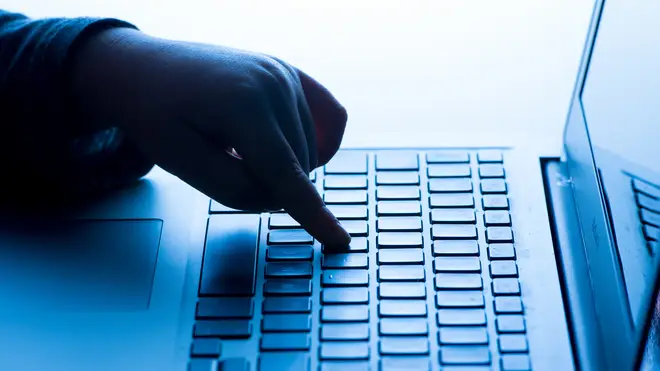
James O'Brien 10am - 1pm
8 January 2021, 17:44

The telecoms giant, which owns mobile operator EE, said it would also zero-rate some educational websites by the end of the month.
BT is increasing the free mobile data allowance it offers to schoolchildren in lockdown and has pledged to zero-rate some educational websites as part of a new scheme to help pupils and their families.
The telecoms firm, which owns mobile operator EE, confirmed it would now offer unlimited data to pupils in remote learning as part of a Government scheme, up from 20GB a month.
The company said it would also zero-rate a number of educational websites used in home learning by the end of the month, meaning accessing these sites will not use any of a mobile data allowance.
It comes after the Department for Education (DfE) denied reports it had turned down an offer from BT last year to provide cheap broadband for disadvantaged families.
According to The Mirror, BT consumer boss Marc Allera told Labour MP Sarah Owen the department had “declined” an offer from the telecoms firm to supply basic internet connections to the most in-need families.
But in a blog post on the DfE website, the department said the report was “not true”.
“Last year, the department ran a pilot in partnership with BT, to provide children and young people free access to a BT wifi hotspot,” it said.
“Through the pilot, 10,000 BT codes were sent to Local Authorities and trusts for them to pass on to disadvantaged families so that they could access a BT wifi connection until 31 December 2020.
“Following testing this offer didn’t meet children and young people’s needs for a reliable and consistent internet connection to access remote education and, as a result, was not taken forward.”
The new steps announced by BT are part of the firm’s Lockdown Learning support scheme, which will also give free wifi vouchers to schools and charity partners and publish more online educational resources through its own Skills for Tomorrow programme.
Internet and technology firms have been urged to do more to support schoolchildren forced to study at home during England’s new national lockdown, with particular concerns about those from disadvantaged families who lack access to internet connections and devices.
On Thursday, the Children’s Commissioner for England, Anne Longfield, said: “Every child has the right to a good education and it is not acceptable that some children are unable to learn, through no fault of their own, because of a lack of technology, or because their home circumstances prevent them being able to work effectively.”
In recent days, a number of network operators who are part of the Department for Education’s (DfE) Get Help with Technology programme – which offers free mobile data to students – have taken steps to increase their allowances.
On his company’s new scheme, Mr Allera said: “As a national champion, we want to ensure no one is left behind while face-to-face teaching is on hold.
“That’s why we’re launching our Lockdown Learning support scheme, which offers a number of different ways for disadvantaged schoolchildren to get connectivity support, across both our fixed and mobile networks.
“We’ve been working closely with the DfE since the start of the pandemic, to help get kids connected, and we’re now stepping up our partnership to offer unlimited data, as well as working harder on getting free wifi passes into the hands of those families and kids that need them.
“We’re also aiming to zero-rate some of the most popular learning portals this month, to ensure critical learning can continue even when data access runs out. We’ll reveal more on this in the coming week.”